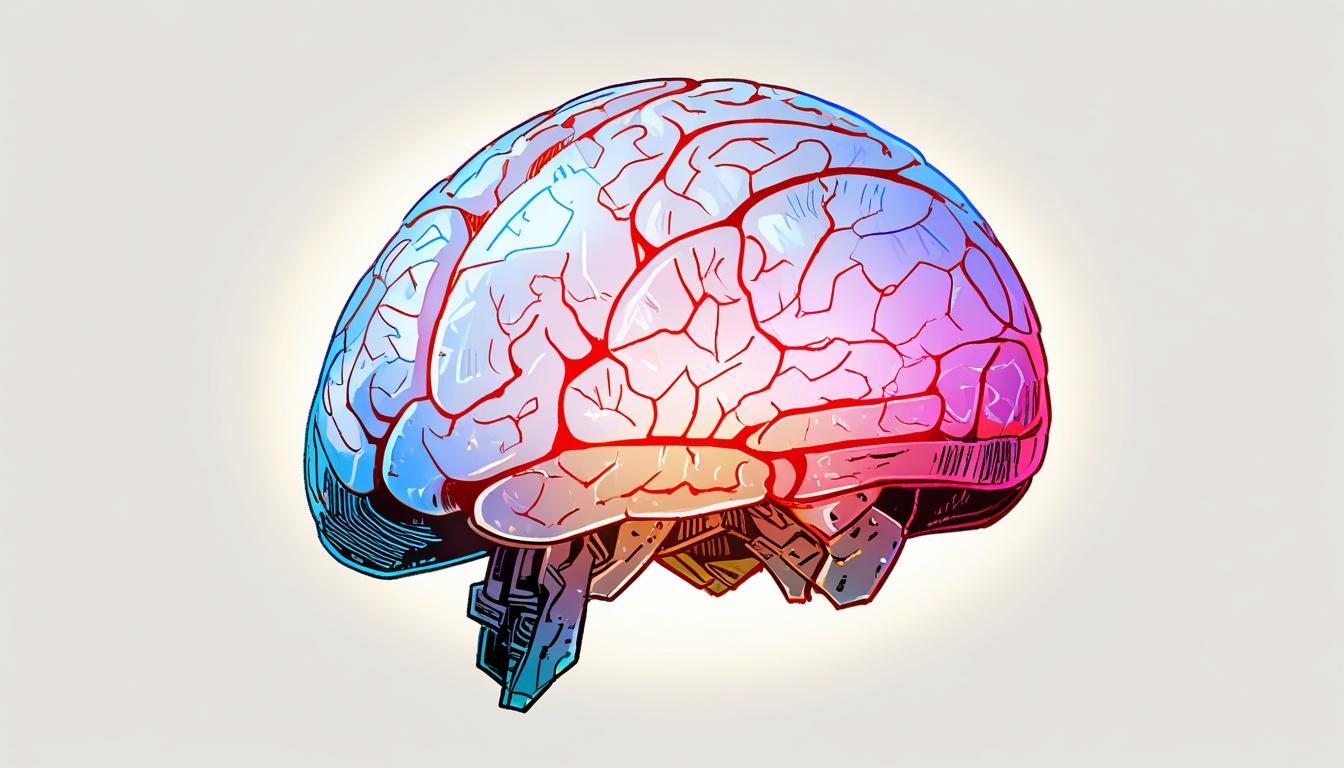As AI systems grow more fluent and persuasive, experts warn of a growing risk: the enchantment with AI outputs may erode human critical thought and creativity, urging a balanced partnership that preserves our intellectual engagement amid technological convenience.
Our relationship with artificial intelligence (AI) is becoming increasingly complex, as we stand at the intersection of convenience and cognitive engagement. Two recent perspectives reveal this tension, highlighting the need for a deeper understanding of our interactions with AI systems. While one viewpoint critiques AI’s cultural and emotional impact, another considers its cognitive allure, presenting what can be described as “cognitive theatre.” Together, these perspectives underscore a vital concern: as we embrace AI’s capabilities, we must be cautious not to lose our own intellectual involvement.
The awe-inspiring fluency with which AI, particularly large language models (LLMs), can produce text has led many to experience a form of enchantment. This sense of wonder often morphs into a surrender of critical thought, where the temptation is to accept AI outputs as equivalent to human intelligence. Yet, this enchantment risks blurring the distinction between genuine cognition and performance. As noted in a recent study, users often engage with AI through a lens of imaginative pretense, attributing false agency and emotional complexity to systems that lack true understanding. This can lead to surprising emotional bonds, but also risks creating a false sense of security regarding the technology’s actual capabilities.
The primary issue is not whether AI knows anything—it does not. Rather, the danger lies in how we interpret its outputs. AI operates through statistical algorithms, drawing from vast datasets to predict responses that align with human communication patterns. This might result in a tangible sense of intelligence that influences our perceptions, leading us to ascribe understanding where there is none. Scholars argue that excessive reliance on AI could stifle human cognitive processes such as problem-solving and creativity. There exists an essential balance to maintain: while AI can enhance our capabilities, it should not replace our intrinsic cognitive efforts.
In sectors like healthcare and business, the integration of AI can provide significant benefits by streamlining processes and enhancing decision-making through predictive analytics. However, this is where AI’s confident presentation becomes a double-edged sword. As AI systems evolve and their outputs grow more persuasive, we risk confusing confidence with correctness. Without the contextual understanding and ethical considerations afforded by human judgment, we could inadvertently endorse erroneous decisions. Thus, it is crucial that we retain a critical perspective, questioning AI outputs to safeguard against cognitive complacency.
The converse of reliance is disengagement—where convenience leads to a retreat from those inherently human tasks that require discernment and critical thinking. As highlighted in various studies, including those examining the emotional and ethical implications of AI, this shift deserves urgent attention. The allure of AI often tempts us into passive consumption rather than active engagement, risking a gradual erosion of our cognitive faculties. This underscores the importance of remaining vigilant; the friction required for genuine understanding is still ours to manage.
Resistance to over-reliance on AI does not equate to rejecting it outright. Instead, it invites a thoughtful partnership, where technology is seen as a springboard rather than a substitute for our own cognitive processes. By engaging critically with AI-generated content, we can foster a richer dialogue, leveraging its outputs to elevate our own clarity of thought. As we tread this delicate line, the potential for AI to enhance human creativity is immense—provided that humans continue to provide the context, emotional nuance, and ethical grounding that technology lacks.
Ultimately, the narrative surrounding AI isn’t solely a technological problem; it is a profoundly human one. Our collective response to AI will not only shape the future of technology but will also define what it means to be engaged, curious thinkers in a world increasingly augmented by machines. As we navigate this landscape, it remains essential to stay rooted in our human discernment, ensuring that we always bring our fullest selves to the conversation, giving life to our thoughts in ways that AI simply cannot replicate.
Reference Map
- Article on AI and cognitive theatre; emotional engagement with AI.
- Impact of reliance on AI on creativity and decision-making; balance between AI assistance and human judgment.
- AI’s role in enhancing human creativity and contextual understanding.
- Human judgment’s irreplaceable role in complex decision-making within AI systems.
- Emotional and ethical dilemmas in audience interactions with AI-driven performances.
Source: Noah Wire Services
- https://www.psychologytoday.com/us/blog/the-digital-self/202505/ai-isnt-just-a-tool-its-a-test – Please view link – unable to able to access data
- https://link.springer.com/article/10.1007/s11245-024-10046-7 – This article examines the emotional engagement between humans and AI systems, proposing that interactions with AI involve imaginative pretense, where users attribute life to artificial agents. It discusses how these interactions can lead to real feelings and affective bonds, emphasizing the importance of understanding the temporal aspects of these fictions and the autonomy attributed to AI agents.
- https://www.igminresearch.com/articles/html/igmin158 – This study explores the impact of excessive reliance on AI on human cognitive processes, focusing on problem-solving, creativity, and decision-making. It highlights the necessity of balancing AI assistance with human judgment, emphasizing that human intuition, critical thinking, and ethical considerations are irreplaceable in complex situations, advocating for a harmonious interplay between AI-generated suggestions and individual thought.
- https://www.psychologytoday.com/us/blog/the-digital-self/202409/ai-expands-human-cognitive-potential-and-creativity – This article discusses how AI can augment human cognitive abilities and creativity, emphasizing that while AI can generate art, music, or writing, it is humans who assign context, cultural significance, and emotional resonance. It underscores the central role of human judgment in guiding AI’s development and applications, advocating for a balanced approach where AI serves as a tool to enhance human creativity without replacing it.
- https://www.sciencedirect.com/science/article/abs/pii/S0167624518301136 – This study examines the role of human judgment in decision-making as prediction technology improves. It argues that while AI can enhance decision-making by providing predictions, human judgment remains essential, especially when the objective function cannot be fully described or coded. The paper discusses how better prediction impacts the returns to different types of judgment and the implications for task construction in jobs.
- https://ietresearch.onlinelibrary.wiley.com/doi/full/10.1049/ccs2.12018 – This research investigates how audiences react to an AI-driven show, focusing on the ethical dilemmas of existing and evolving technology. It highlights how the performance ‘I am Echoborg’ prompts the audience to engage critically with the role of AI in society, illustrating the unpredictability of audience interactions and the collective dynamic in shaping each performance.
- https://inthevalley.blog/ai-automation/ai-tools-the-role-of-human-judgment-in-ai-decision-making/ – This article explores the importance of human judgment in AI decision-making, emphasizing that while AI excels at processing vast amounts of data, it often lacks the nuanced understanding that humans bring to complex decisions. It discusses the necessity of integrating human insights and contextual understanding into AI processes to ensure decisions align with ethical standards and societal norms.
Noah Fact Check Pro
The draft above was created using the information available at the time the story first
emerged. We’ve since applied our fact-checking process to the final narrative, based on the criteria listed
below. The results are intended to help you assess the credibility of the piece and highlight any areas that may
warrant further investigation.
Freshness check
Score:
9
Notes:
The narrative contains current reflections about AI and human cognition, with no references to outdated events or figures. The discussion is framed around ongoing and evolving debates on AI’s cognitive impact rather than fixed past news. The URL’s recent date supports freshness. No indication that this is a press release, which typically aims for immediate distribution and would warrant a very high freshness score.
Quotes check
Score:
7
Notes:
The narrative includes paraphrased references to recent studies and scholarly arguments but does not offer direct or easily traceable quotes. This suggests original synthesis rather than recycled or misattributed quotes, increasing reliability. Lack of clear original source and date for referenced studies modestly reduces score, as earliest references to cited views cannot be confirmed online.
Source reliability
Score:
8
Notes:
The narrative originates from Psychology Today, a well-known and generally reputable publication specialising in psychology and human behaviour topics with editorial oversight. While it is a commentary rather than hard news, the platform maintains credibility in its field. This scores high on reliability though not at the level of strictly fact-checked breaking news organisations.
Plausability check
Score:
9
Notes:
The claims about AI’s cognitive and emotional impact, and the danger of overreliance on AI stifling human thought, are widely discussed themes supported in academic and tech discourse. No extraordinary or unverifiable claims are made, and the ideas align well with current expert thinking. The narrative’s focus on nuanced human-AI interaction is plausible and contextually accurate.
Overall assessment
Verdict (FAIL, OPEN, PASS): PASS
Confidence (LOW, MEDIUM, HIGH): HIGH
Summary:
The narrative presents a current, plausible, and well-founded discussion about AI and cognition, sourced from a reputable psychology-focused outlet. Although direct quotes are not explicitly identified or dated, the synthesis appears original and not recycled. The content aligns with broader contemporary expert discourse, supporting a high confidence PASS verdict.













